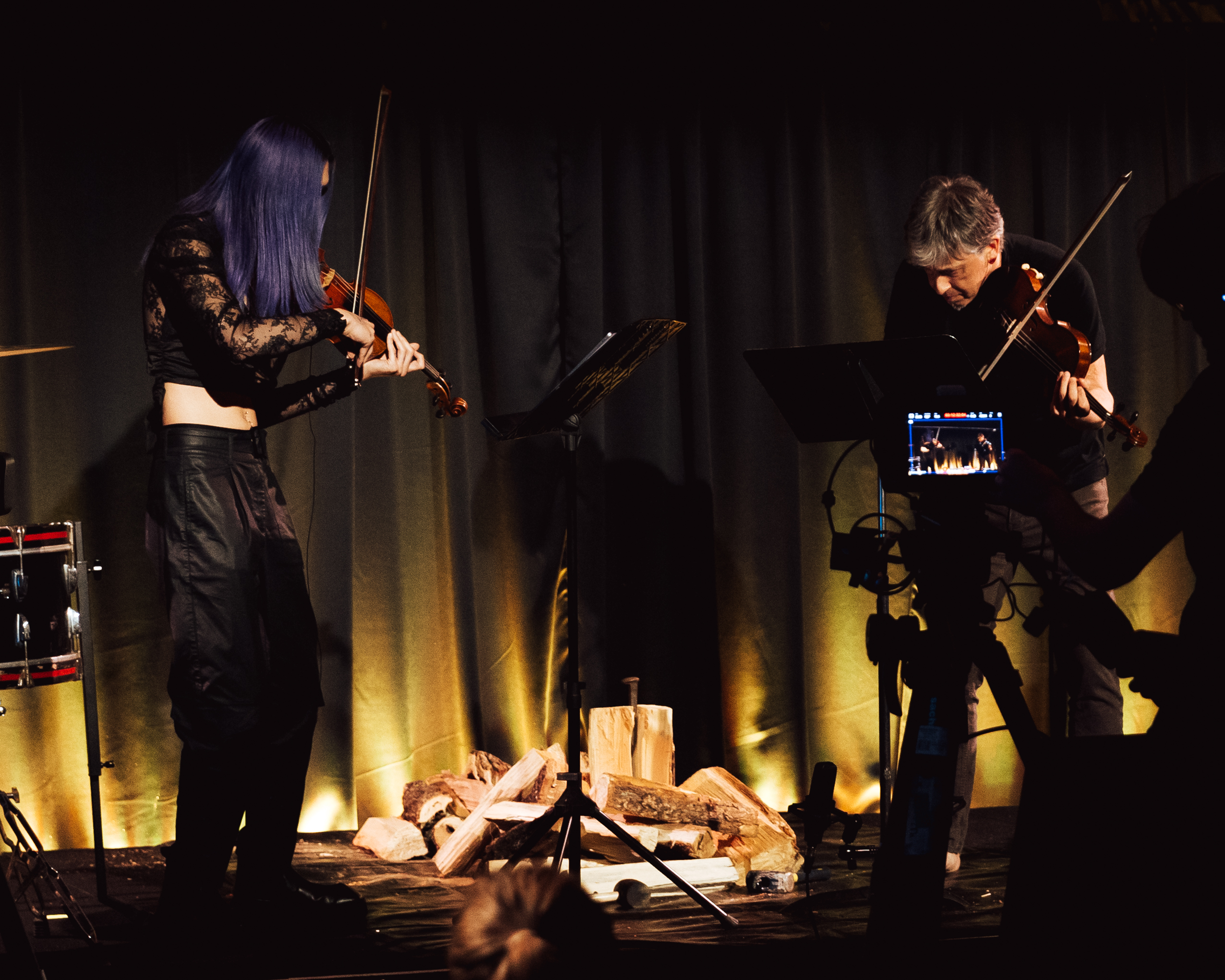
wasteLAnd's Violet Tang and Mark Menzies perform on violin for "Duet."
“American Ledger no. 1” sounds different each time.
That’s by design, MacArthur fellow Raven Chacon told Zócalo before a performance of his ambitious sound and visual retelling of the nation was staged at the ASU California Center in downtown Los Angeles. The event concluded Zócalo’s 2023 public programs season.
Aside from the abstract shapes that appear on the score and the notes Chacon provides to the conductor and musicians, the musical expression is left up to interpretation. Some sounds and actions occur regularly: throwing coins when a bunch of dots show up. Lighting a match when you see an eighth note with a flame. But other elements vary widely, from the instruments used to other ways sound is conveyed. (For example, because the ASU California Center does not allow axes, the performers last night had to get creative when the score suggested chopping wood.)
“I’m very open to what somebody might bring to this, as long as they are trying to tell the very serious and violent history of the United States,” Chacon said.
The special evening of music, co-presented with L.A.-based music collective wasteLAnd, ASU Gammage, and GRoW Annenberg, began in the historic lobby of the Herald Examiner building, with another Chacon creation, the call-and-response duet “Echo Contest.” As the audience followed the music into the Yuhaaviatam of San Manuel Event Center, performers embedded in the audience to create a blanketing—yet assertive—effect.
A voiceover from Chacon explained what each line of the score for “American Ledger no. 1,” rendered in the shape of the American flag and supersized on the screen so the audience could follow along, represented.
First, there is a blank space: a time before humans, and maybe animals, “where we don’t remember what existed here on this land.” Topography—stars, mountains, landscape—follows. A continuation of this “uninterrupted lineage of this worldview” is only offset by ships being built from the other side of the world, coming closer and closer. The following lines continue the story: Colonies are built, humans are labeled not five-fifths but three-fifths of a person, the economy grows, and commerce expands; all the while, a steady beat of inequality drums on. By the sixth line, things are either speeding up or slowing down—maybe there’s revolt or protest or assassination, Chacon suggests.
The final line is open-ended: “We don’t know what happens,” he says.
After the show concluded, the audience enjoyed refreshments and tamales from Mama’s Tamales, and Tacos, Too.
“The coins—line four, line five—that was actually the best sounds for me,” an audience member, Andrew Choate, said while chatting with one of the ensemble members, William Roper (who played the helicon, a brass instrument in the tuba family), after the performance.
But Choate said that he had to plug his ears during the police whistles: “That was too harsh.”
“It was harsh,” Roper agreed, “but we live in a harsh land.”




Send A Letter To the Editors